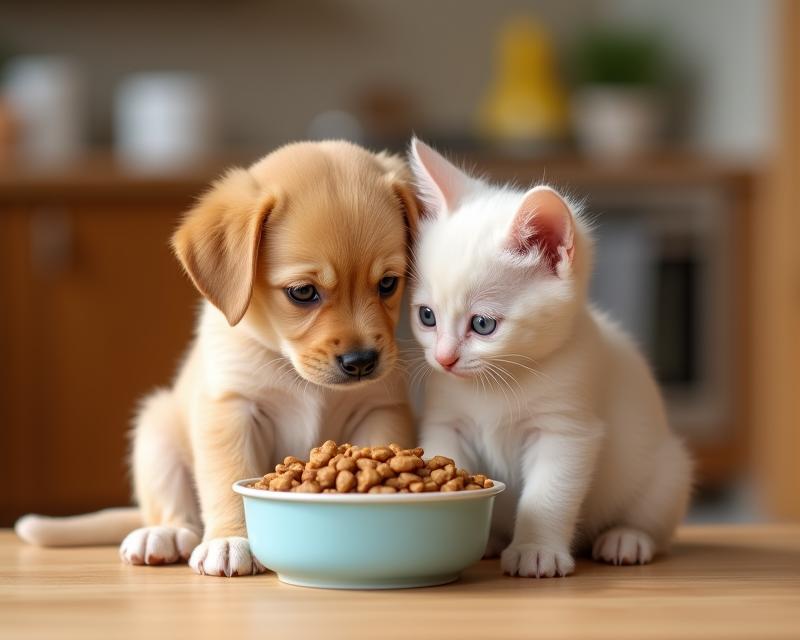Puppy & Kitten Nutrition: Age Matters!
Publish in Health el 28/06/2025 23:04
Puppy & Kitten Nutrition: Age Matters!
Bringing a new puppy or kitten home is an exciting time! One of the most important things you can do for their health and development is to provide them with the right nutrition. But what do they need, and how does that change as they grow? Let's break down the nutritional needs of puppies and kittens by age.

The First Few Weeks: Mother's Milk & Early Solids
In their first few weeks, puppies and kittens rely entirely on their mother's milk. This milk is packed with antibodies that help protect them from illness. Around 3-4 weeks old, you can start introducing solid food. Start with a high-quality puppy or kitten food specifically formulated for their age. Mix a small amount of wet food with warm water to create a slurry, making it easier for them to eat. Gradually increase the amount of food and decrease the amount of water over a few days.
2-6 Months: Rapid Growth & Development
This is a period of rapid growth! Puppies and kittens need food that's rich in protein, fat, and calories to support their bone, muscle, and organ development. Look for puppy or kitten food that lists meat (like chicken, lamb, or fish) as the first ingredient. Feed them 3-4 times a day. It's crucial to avoid overfeeding, as this can lead to obesity and skeletal problems. Always provide fresh, clean water.
6 Months - 1 Year: Transition to Adult Food
Around 6 months old, you can start transitioning your puppy or kitten to an adult food. This is a gradual process – mix increasing amounts of adult food with their puppy/kitten food over a week or two. Adult food has a different nutrient profile than puppy/kitten food, with lower levels of certain nutrients to prevent overgrowth. Continue feeding 2-3 times a day, adjusting the amount based on their activity level and body condition. Regular vet checkups are essential during this stage to monitor their growth and overall health.
Important Considerations
Always choose a food that's appropriate for your pet's age and breed. Avoid foods with artificial colors, flavors, and preservatives. Pay attention to your pet's body condition – you should be able to feel their ribs easily, but not see them. Consult with your veterinarian to determine the best food and feeding schedule for your individual puppy or kitten. They can also advise you on any specific dietary needs based on your pet's health history. Remember, proper nutrition is a cornerstone of a long and healthy life for your furry friend!





